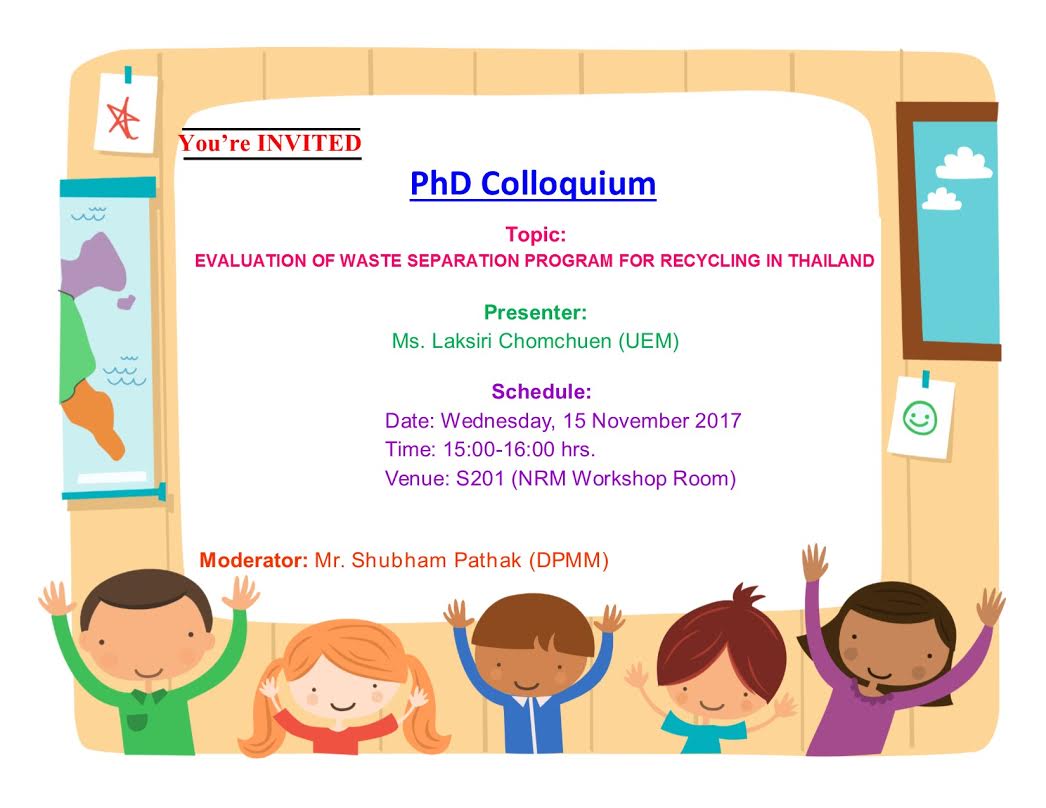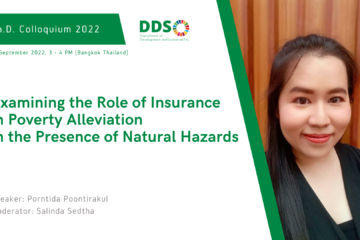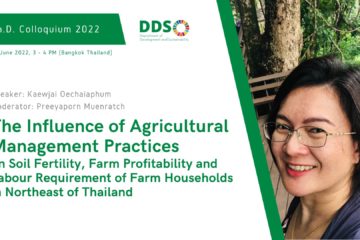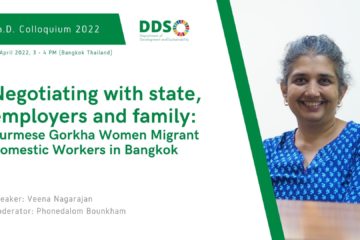PhD Colloquium for November 2017

PhD Colloquium for October 2017
Title: EVALUATION OF WASTE SEPARATION PROGRAM FOR RECYCLING IN THAILAND
Presenter : Ms.Laksiri Chomchuen (UEM)
Moderator : Mr.Shubham Pathak (DPMM)
Date : 15 November 2017 (15:00 – 16:00)
Venue S201 (NRM Workshop Room)
The presentation entails a study of the potential approaches in overcoming waste problems in developing countries. Since there was limited understanding on the profound impact and transference of Sustainable Solid Waste Management (SSWM) on its mainstreaming into policies, this presentation aimed to present empirical evidences of the good practices of waste separation programs to the mainstream recycling system in Thailand. The study applied a combination of exploratory and descriptive type and obtained a case study approach to investigate the three selected programs for source separation of waste – Community-based Recycle Management (CRM), Municipality Center for Recycling (MCR), and Scavenger Group for Recycling (SGR).
Qualitative indicators were developed specifically to this research in order to evaluate case performance. The results show that waste separation at source programs for recycling in Thailand did not come from national waste management policy. They were initiated from local residents’ intention to solve waste problems that had been increasingly affected them for years. For Community-based Recycle Management (CRM) program, the main source of budget basically came from community revolving fund and partial supply from municipality. This model utilizes social norms and mutual trust serving effectiveness of the program. Participatory approach is the main function to run activities such as developing group policy, setting rules and regulations, functioning activities. This model promotes the reduction of organic waste and recyclable waste. The Municipality Center for Recycling (MCR) program shows its potential in being a center of solid waste logistics for separation, recycling and management at a city level. Knowledge transfer and capacity building programs are the key approach to promote villagers to be able to understand the root of reason, to be willing to participate and to separate waste properly.
This model has high performance in reducing organic waste, recyclable waste, electronic and toxic waste in the city area. The Scavenger Group for Recycling (SGR) is local waste picker group functioned as a Waste Pickers Cooperative (WPC). It affected not only a significant change in waste stream in the area but also changed the perception of the rest of community. It helps reduce recyclable waste the most, following by organic waste in the area. It can be summarized that initiatives from three different programs serve a variety of benefits to waste reduction in certain types of waste, especially recyclable and organic waste, and serve socio- economic dimension too. It was found that the program that allowed involvement of local associations in taking part to facilitate their own management, with a knowledge support from partners, appeared to have higher separation efficiency and leading to greater amounts of recyclable materials being source separated. It suggests that improvement of local institutions’ capacity on waste separation at source, socio-economic benefit dimension is key elements to be carefully considered as it will be the driven factors for incentive to motivate people to conduct waste separation and run the program. Communication campaigns to consolidate trust and inspire moral obligations of residents also have an essential role to play in overcoming the common dilemmas of sustainable solid waste management.



0 Comments